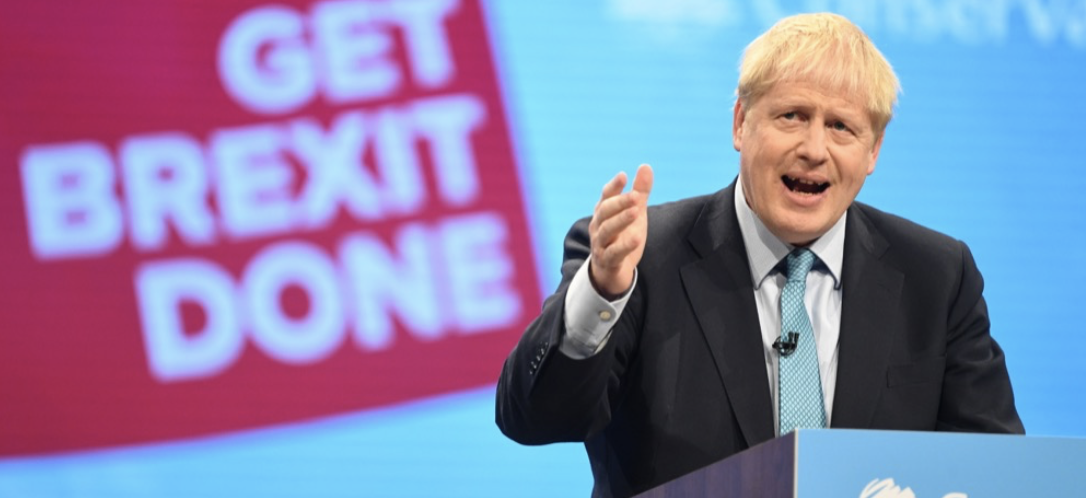Boris Johnson’s emphatic victory in last Thursday’s General Election means the UK will now be leaving the European Union on 31 January 2020. 
The details of Britain’s new relationship with the EU are still to be settled but Johnson wants everything wrapped up by the end of next year. Easier said than done.
We shall learn more about the Government’s plans on Thursday (19 December) with the State Opening of Parliament and the Queen’s Speech.
The Conservative Manifesto tells us:
“Boris Johnson’s new deal takes the whole country out of the EU as one United Kingdom. It takes us out of the Customs Union, allowing us to set our own tariffs and do our own trade deals. It allows us to pass our own laws and ensures that it is our courts that enforce them.”
It goes on:
“We will keep the UK out of the single market, out of any form of customs union and end the role of the European Court of Justice…. We will negotiate a trade agreement next year – one that will strengthen our Union – and we will not extend the implementation period beyond December 2020.”
Get Brexit Done
Boris Johnson now has a colossal majority in Parliament to do whatever he wants. His simple promise to the voters to “Get Brexit Done” won the day. But will the EU play ball?
Self evidently, the EU will not want to agree terms of trade which disadvantage their own producers. What will happen to the UK’s hugely important service sector? Will the UK’s car manufacturers still be able to export their vehicles to the EU without tariffs? And what about the future of aerospace – an important UK industry? What is going to happen to Airbus? The wings are made in North Wales and shipped to Toulouse in France to be assembled with other parts that come from across Europe. Are these arrangements going to continue as before? Unlikely.
Mark Carney has warned that decoupling the UK from Europe could mean that some key UK industries could become uneconomic.
Boris makes it up as he goes along
We do not really know how Johnson will deal with the millions of practical problems thrown up by Brexit. With Boris the past is not a reliable guide to the future.
Over his years in the public eye, first as a journalist and latterly as a politician, Johnson has always embellished and fabricated. His speeches and statements are full of evasions, half-truths and out-and-out lies. This is presumably why Donald Trump gets along so well with him.
The Conservative columnist Peter Obsorne has launched a website to track Johnson. He tweets when the PM is caught telling a whopper.
When one of the BBC’s most feared political interrogators, Andrew Neil, sought an interview with Johnson during the election campaign he was ignored. Neil, who had interviewed all the other Party leaders, was livid.
The Observer's political columnist, Andrew Rawnsley, says the election result means we shall at last find out what the shape-shifter Johnson really believes.
So, where does this leave Labour?
Sitting on the fence
The Labour Leader, Jeremy Corbyn, sat on the fence on the biggest issue of the day. No-one knew if he was for or against Brexit. He stayed studiously neutral in the election while promising, after he’d won, a second referendum on a renegotiated withdrawal deal or the status quo. Aaaargh! After three and a half years of debate on Brexit this was a contortion too far.
Corbyn reasoned he would alienate Labour leaning voters if he nailed his colours to the leave or remain masts and ended up satisfying no-one. His trumpet made a very uncertain sound.
While Corbyn was trying to be all things to all people, Johnson was purging the Conservative Party of pro-EU MPs and honing his simple message promising to get Brexit done. Outflanked, the populist leader of the Brexit Party, Nigel Farage, threw in his lot with Johnson. He would not field candidates in Conservative held ridings - giving them a free pass - but he would contest Labour and Liberal ridings.
In the election, the Conservatives percentage share of the vote increased only marginally, by 1.2% (compared with the previous election in 2017) but Labour's support fell through the floor.
Constituencies that had been Labour since the dawn of time - including Tony Blair's Sedgefield - now returned Conservative MPs. How this will change the dynamics within the Conservative Party is, for the moment, uncertain but it will surely come into play at some stage.
This election was all about Brexit and Johnson won. If it goes pear-shaped he has no-one else to blame.
But, being Johnson, he will try.
The Scottish Question
The relentless rise of the Scottish National Party (SNP) which enthusiastically embraces the EU is the other big story of this historic election. The SNP is pressing for another referendum on independence which Johnson flatly refuses. (Under the devolution settlement it falls to the UK Parliament to decide.) But if the SNP sweeps the board again in the next Scottish Parliamentary election on 6 May 2021 it will claim a fresh new mandate for another referendum which may be difficult to resist.
We may yet see the kind of constitutional turbulence in the UK which, though dormant now, has long been a feature of politics here in Canada.
This email address is being protected from spambots. You need JavaScript enabled to view it.
Update on 16 December 2019: From the Globe and Mail: Brexit and the future of Conservatism.
Update on 23 December 2019: From the House of Commons Library: Why the trade in services is so important to the UK
